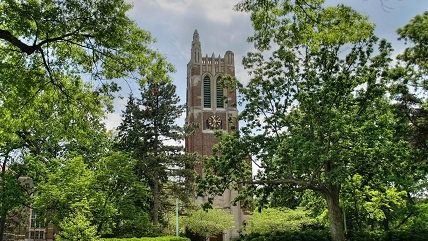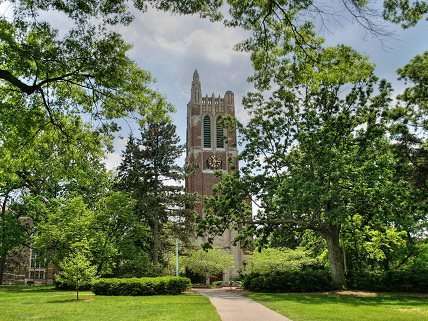Students Demand Censorship of George Will, Won't Listen to Someone They Don't Like


Another day, another group of insolent students demanding that their university censor a prominent speaker and deprive the rest of campus of the opportunity to learn from him.
George Will is slated to give Michigan State University's fall semester commencement address on December 13th and receive an honorary degree from the university. But because one of the thousands of columns he has written in his life was deemed controversial by those on the far-left side of the campus sexual assault issue, some students want him disinvited from campus.
Will strikes me as conservative with some good libertarian instincts; as such, I don't agree with everything he says. I will note, however, that he has recently made very smart contributions to the cause of criminal justice reform. In a column lamenting the brutality that caused Eric Garner's death and the miscarriage of justice evident in the grand jury's decision not to indict, Will wrote, "Overcriminalization has become a national plague." He explicitly described solitary confinement as "torture."
(Perhaps he should have just written #BlackLivesMatter and stopped at that—the only parlance deemed acceptable by campus crusaders.)
Of course, whether one agrees with an invited speaker entirely, partly, or not at all is beside the point. In fact, a strong case can be made that it is even more important to hear from notable people whose views differ from one's own—especially on campuses, where opportunities to hear opinions critical of liberalism are in short supply.
Some students, however, took a different view, according to Bloomberg:
About 30 protestors gathered in the administration building and delivered a petition calling for Will's invitation to be rescinded, said Jason Cody, a spokesman for the university in East Lansing.
MSU President Lou Anna Simon said in astatement yesterday that Will was picked because he would offer a different viewpoint from another speaker, documentary filmmaker Michael Moore, and that Will was chosen long before his controversialcolumn was published on June 6. Will wrote then that colleges are learning "that when they make victimhood a coveted status that confers privileges, victims proliferate."
"We refuse to be silent," said Emily Kollaritsch, 21, one of about six or seven of the protestors who went into Simon's office. "We're going to have our voices heard."
More than 70,000 people signed the petition, started by the women's rights advocacy group UltraViolet, which has called Will a "rape apologist."
MSU President Lou Anna Simon, at least, has refused to disinvite Will, noting that "Great universities are committed to serving the public good by creating space for discourse and exchange of ideas, though that exchange may be uncomfortable and will sometimes challenge values and beliefs." This sets her apart from some other university presidents who caved under pressure to disinvite controversial speakers.
Indeed, "disinvitation season," as Foundation for Individual Rights in Education President Greg Lukianoff calls it, shows no sign of winding down. The problem of universities cancelling speakers on behalf of censorship-inclined students may even be worsening.
If a liberal arts education has any purpose, it is to teach students the importance of Enlightenment values like free speech, tolerance, and rational debate. When students demand that authorities silence dissenting views, they unintentionally demonstrate that they don't deserve the diplomas they are about to receive.
Related: As I argued yesterday, college has become bumper bowling and degrees are participant ribbons.
